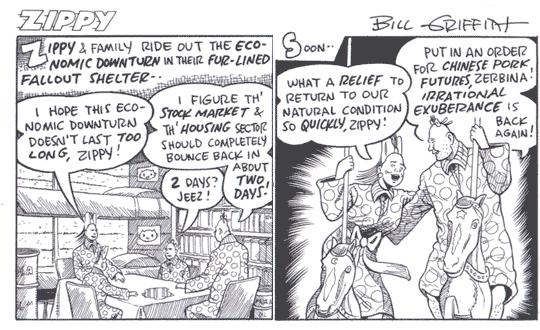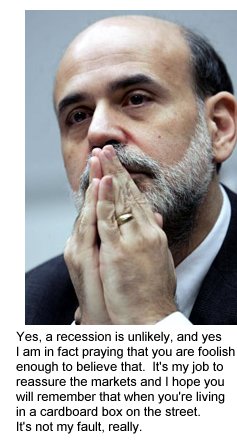Some words have a way of enduring. Take "endure." As the Bush administration headed into Iraq in the spring of 2003, the Pentagon already had plans on the drawing board to build at least four gigantic American bases in that country and garrison them for the long haul. But when questioned on the subject, administration officials and spokespeople were eager to avoid linking the word "permanent" to those as-yet-unbuilt bases and so, for a while, referred to them instead as "enduring camps," a phrase that had a certain charm and none of the ominous overtones of "permanent base." In the end, of course, more than four massive bases were built and garrisoned. Given the slow American drawdown in that country, their fate remains unknown — and typically undiscussed in the U.S. — but as of this moment, they still "endure" and, huge as they are, they couldn’t look more permanent.
According to an agreement signed at the end of George W. Bush’s second term, all American "combat troops" are to be withdrawn from Iraq by this August, hence the U.S. military is planning to relabel any post-August "combat operations" as "stability operations." Think of that as linguistic "endurance." In the same spirit, all U.S. troops are supposed to be out of Iraq by the end of 2011, but as Tim Arango of the New York Times noted recently, "[F]ew believe that America’s military involvement in Iraq will end then. The conventional wisdom among military officers, diplomats, and Iraqi officials is that after a new government is formed, talks will begin about a longer-term American troop presence. ‘I like to say that in Iraq, the only thing Americans know for certain, is that we know nothing for certain,’ said Brett H. McGurk, a former National Security Council official in Iraq and current fellow at the Council on Foreign Relations. ‘The exception is what’s coming once there’s a new government: they will ask to amend the Security Agreement and extend the 2011 date. We should take that request seriously.’"
There is, in other words, a well-based possibility — or at least serious American dreaming — that our mega-installations in Iraq (including our nearly three-quarters-of-a-billion-dollar citadel of an embassy in the heart of Baghdad that takes more than $1.5 billion a year to run and has 1,800 private security guards) will endure.
Now, hop a couple of thousand miles to another war, Afghanistan, and a newly appointed war commander testifying before the Senate in his confirmation hearings. Responding to questions about President Obama’s previously announced decision to begin some kind of an American drawdown there in July 2011, General David Petraeus spent much time playing down the significance of that date (as did the president). He even brought up the possibility that the date could be delayed. In the process, choosing his words with care, he said this: "It is important to note the President’s reminder in recent days that July 2011 will mark the beginning of a process, not the date when the U.S. heads for the exits and turns out the lights. As he explained this past Sunday, in fact, ‘we’ll need to provide assistance to Afghanistan for a long time to come…’ Moreover, as President Karzai has recognized, and as a number of allied leaders noted at the recent G-20 Summit, it is going to be a number of years before Afghan forces can truly handle the security tasks in Afghanistan on their own. The commitment to Afghanistan is necessarily, therefore, an enduring one, and neither the Taliban nor our Afghan and Pakistani partners should doubt that." Given the history of America’s recent wars, that "enduring" couldn’t represent a more ominous choice of words.
Retired Lieutenant Colonel and TomDispatch regular William Astore takes a look at the single most "enduring" aspect of the American military scene in our time, our persistent war-making — and the war preparations that go with it. Tom
Hope and Change Fade, but War Endures
Seven Reasons Why We Can’t Stop Making War
By William J. Astore
If one quality characterizes our wars today, it’s their endurance. They never seem to end. Though war itself may not be an American inevitability, these days many factors combine to make constant war an American near certainty. Put metaphorically, our nation’s pursuit of war taps so many wellsprings of our behavior that a concerted effort to cap it would dwarf BP’s efforts in the Gulf of Mexico.
Our political leaders, the media, and the military interpret enduring war as a measure of our national fitness, our global power, our grit in the face of eternal danger, and our seriousness. A desire to de-escalate and withdraw, on the other hand, is invariably seen as cut-and-run appeasement and discounted as weakness. Withdrawal options are, in a pet phrase of Washington elites, invariably "off the table" when global policy is at stake, as was true during the Obama administration’s full-scale reconsideration of the Afghan war in the fall of 2009. Viewed in this light, the president’s ultimate decision to surge in Afghanistan was not only predictable, but the only course considered suitable for an American war leader. Rather than the tough choice, it was the path of least resistance.
Why do our elites so readily and regularly give war, not peace, a chance? What exactly are the wellsprings of Washington’s (and America’s) behavior when it comes to war and preparations for more of the same?
Consider these seven:
1. We wage war because we think we’re good at it — and because, at a gut level, we’ve come to believe that American wars can bring good to others (hence our feel-good names for them, like Operations Enduring Freedom and Iraqi Freedom). Most Americans are not only convinced we have the best troops, the best training, and the most advanced weapons, but also the purest motives. Unlike the bad guys and the barbarians out there in the global marketplace of death, our warriors and warfighters are seen as gift-givers and freedom-bringers, not as death-dealers and resource-exploiters. Our illusions about the military we "support" serve as catalyst for, and apology for, the persistent war-making we condone.
2. We wage war because we’ve already devoted so many of our resources to it. It’s what we’re most prepared to do. More than half of discretionary federal spending goes to fund our military and its war making or war preparations. The military-industrial complex is a well-oiled, extremely profitable machine and the armed forces, our favorite child, the one we’ve lavished the most resources and praise upon. It’s natural to give your favorite child free rein.
3. We’ve managed to isolate war’s physical and emotional costs, leaving them on the shoulders of a tiny minority of Americans. By eliminating the draft and relying ever more on for-profit private military contractors, we’ve made war a distant abstraction for most Americans, who can choose to consume it as spectacle or simply tune it out as so much background noise.
4. While war and its costs have, to date, been kept at arm’s length, American society has been militarizing fast. Our media outlets, intelligence agencies, politicians, foreign policy establishment, and "homeland security" bureaucracy are so intertwined with military priorities and agendas as to be inseparable from them. In militarized America, griping about soft-hearted tactics or the outspokenness of a certain general may be tolerated, but forceful criticism of our military or our wars is still treated as deviant and "un-American."
5. Our profligate, high-tech approach to war, including those Predator and Reaper drones armed with Hellfire missiles, has served to limit American casualties — and so has limited the anger over, and harsh questioning of, our wars that might go with them. While the U.S. has had more than 1,000 troops killed in Afghanistan, over a similar period in Vietnam we lost more than 58,000 troops. Improved medical evacuation and trauma care, greater reliance on standoff precision weaponry and similar "force multipliers," stronger emphasis on "force protection" within American military units: all these and more have helped tamp down concern about the immeasurable and soaring costs of our wars.
6. As we incessantly develop those force-multiplying weapons to give us our "edge" (though never an edge that leads to victory), it’s hardly surprising that the U.S. has come to dominate, if not quite monopolize, the global arms trade. In these years, as American jobs were outsourced or simply disappeared in the Great Recession, armaments have been one of our few growth industries. Endless war has proven endlessly profitable — not perhaps for all of us, but certainly for those in the business of war.
7. And don’t forget the seductive power of beyond-worse-case, doomsday scenarios, of the prophecies of pundits and so-called experts, who regularly tell us that, bad as our wars may be, doing anything to end them would be far worse. A typical scenario goes like this: If we withdraw from Afghanistan, the government of Hamid Karzai will collapse, the Taliban will surge to victory, al-Qaeda will pour into Afghan safe havens, and Pakistan will be further destabilized, its atomic bombs falling into the hands of terrorists out to destroy Peoria and Orlando.
Such fevered nightmares, impossible to disprove, may be conjured at any moment to scare critics into silence. They are a convenient bogeyman, leaving us cowering as we send our superman military out to save us (and the world as well), while preserving our right to visit the mall and travel to Disney World without being nuked.
The truth is that no one really knows what would happen if the U.S. disengaged from Afghanistan. But we do know what’s happening now, with us fully engaged: we’re pursuing a war that’s costing us nearly $7 billion a month that we’re not winning (and that’s arguably unwinnable), a war that may be increasing the chances of another 9/11, rather than decreasing them.
Capping the Wellsprings of War
Each one of these seven wellsprings feeding our enduring wars must be capped. So here are seven suggestions for the sort of "caps" — hopefully more effective than BP’s flailing improvisations — we need to install:
1. Let’s reject the idea that war is either admirable or good — and in the process, remind ourselves that others often see us as "the foreign fighters" and profligate war consumers who kill innocents (despite our efforts to apply deadly force in surgically precise ways reflecting "courageous restraint").
2. Let’s cut defense spending now, and reduce the global "mission" that goes with it. Set a reasonable goal — a 6-8% reduction annually for the next 10 years, until levels of defense spending are at least back to where they were before 9/11 — and then stick to it.
3. Let’s stop privatizing war. Creating ever more profitable incentives for war was always a ludicrous idea. It’s time to make war a non-profit, last-resort activity.
4. Let’s reverse the militarization of so many dimensions of our society. To cite one example, it’s time to empower truly independent (non-embedded) journalists to cover our wars, and stop relying on retired generals and admirals who led our previous wars to be our media guides. Men who are beholden to their former service branch or the current defense contractor who employs them can hardly be trusted to be critical and unbiased guides to future conflicts.
5. Let’s recognize that expensive high-tech weapons systems are not war-winners. They’ve kept us in the game without yielding decisive results — unless you measure "results" in terms of cost overruns and burgeoning federal budget deficits.
6. Let’s retool our economy and reinvest our money, moving it out of the military-industrial complex and into strengthening our anemic system of mass transit, our crumbling infrastructure, and alternative energy technology. We need high-speed rail, safer roads and bridges, and more wind turbines, not more overpriced jet fighters.
7. Finally, let’s banish nightmare scenarios from our minds. The world is scary enough without forever imagining smoking guns morphing into mushroom clouds.
There you have it: my seven "caps" to contain our gushing support for permanent war. No one said it would be easy. Just ask BP how easy it is to cap one out-of-control gusher.
Nonetheless, if we as a society aren’t willing to work hard for actual change — indeed, to demand it — we’ll be on that military escalatory curve until we implode. And that way madness lies.
William J. Astore is a retired lieutenant colonel (USAF) and TomDispatch regular. He has taught at the Air Force Academy and the Naval Postgraduate School and currently teaches History at the Pennsylvania College of Technology. He may be reached at wjastore@gmail.com.
Copyright 2010 William J. Astore








 Obama-appointed US Attorney Carmen Milagros Ortiz spent much of her career in public service prior to taking her current job, according to her bio on the Justice Department's Web site.
Obama-appointed US Attorney Carmen Milagros Ortiz spent much of her career in public service prior to taking her current job, according to her bio on the Justice Department's Web site.


